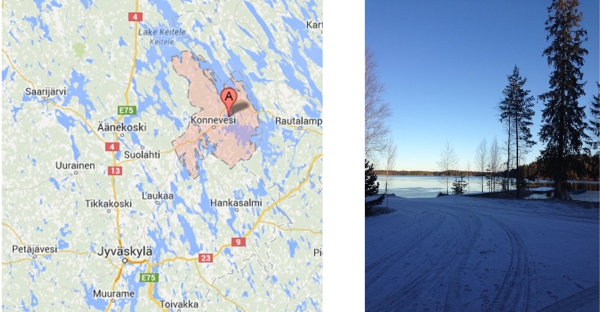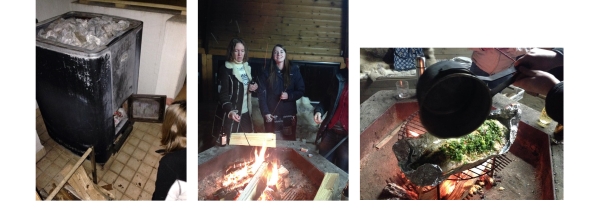BSP Travel Award recipient Rebecca Jones
Fieldwork in Finland

A field report from Finland, funded by a BSP International Training and Fieldwork Award



My first experiment whilst in Konnevesi, a follow-up from my undergraduate project (Jones et al., 2013), examined the response of Great Tits to prey populations that were aggregated or spatial with different frequency of toxic cheats in the population. This involved some DIY to create spatial prey populations and also included feeding bitrex to some birds. Although most were happy with the experiments some did get a bit grumpy!
My second experiment was carried out after a (relatively) warm break over Christmas in the UK. This work examined my study species, the obligate insect parasite Heterorhabdtis bacteriophora and its symbiotic bacterium Photorhabdus luminescens. Upon infection, the insect larva host undergoes a colour change to red and also produces a foul-smelling odour. This colour change is thought to act as a predator deterrent to enhance survival of the nematode, although scent has not yet been examined. My aim in Finland was to use a GM strain of this nematode which did not produce a red colouration so the effect of the scent alone could be examined. The GM strain however still had some pigmentation so the TT01 strain (a non-GM strain from naturally occurring populations) was utilised. Experiments were carried out examining the effect of scent, colour, and colour and scent by observing the Great Tits responses ie. how many infected or uninfected waxworms they would consume (see photos). The experiments went very well and we found that Great Tits were able to detect the scent of infected prey items and respond to it.
It was not all work and no play in Finland and in my spare time I was able to enjoy walks in the forest, saunas, ice-hole swimming (which was extremely cold), bird-ringing and cooking food in the fire hut!
I had an amazing time in Finland, making many new friends and contacts and would especially like to thank Prof. Johanna Mappes for advice and supervising me whilst in Finland and Helina Nisu who took excellent care of the birds during my experiment. I’d also like to thank the BSP for the International Training and Fieldwork award which helped make my trip to Finland possible.
Rebecca Jones, Postgraduate student, Department of Evolution, Ecology and Behaviour, Institute of Integrative Biology, University of Liverpool. @RSJonesScience
Jones, R. S., Davies, S. C. & Speed, M. P. (2013). Defence cheats can degrade protection of chemically defended prey. Ethology 119, 52-57.
Several BSP student members have recently benefitted from the BSP International Training and Fieldwork awards. For further details please see this link.
